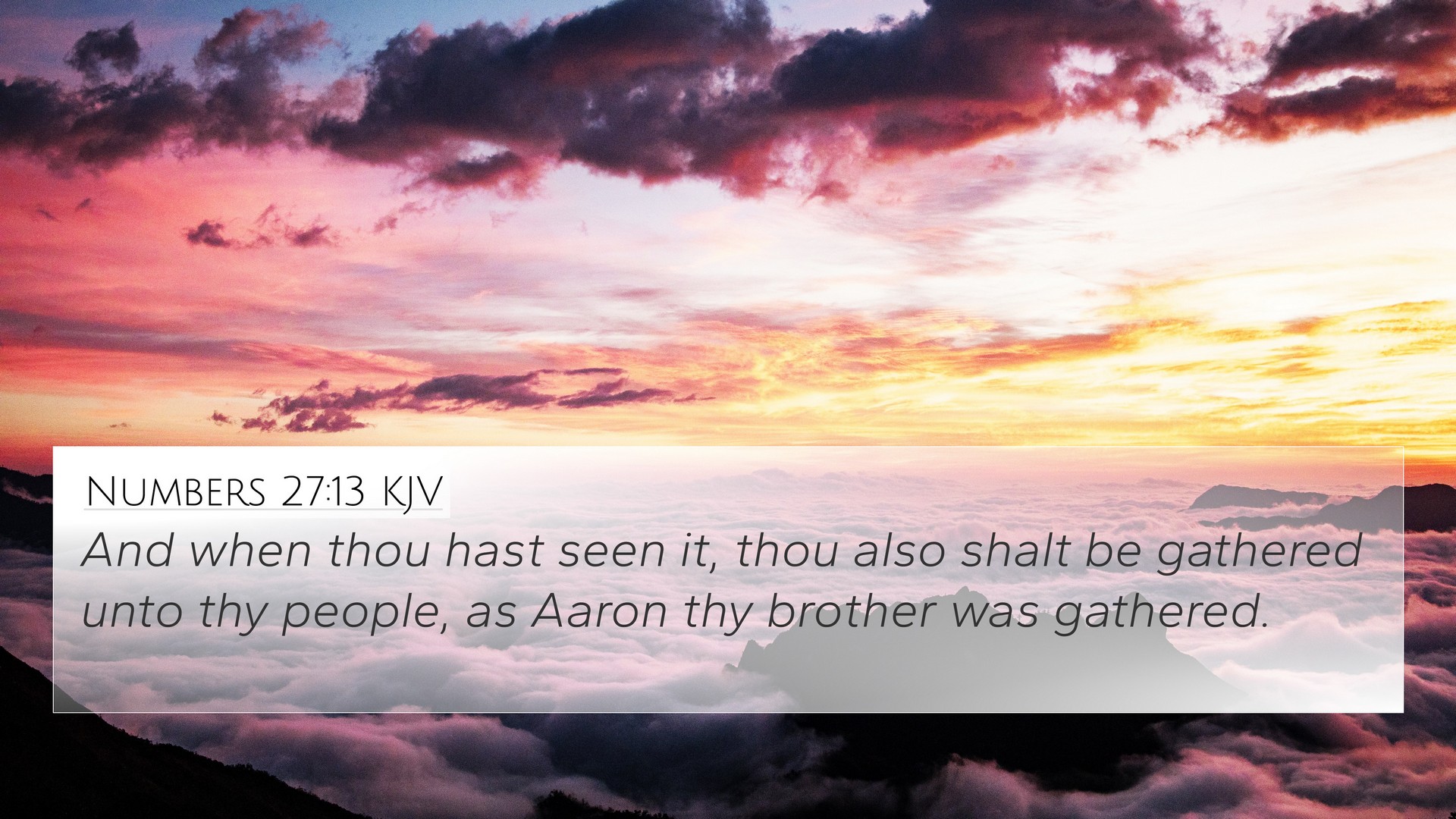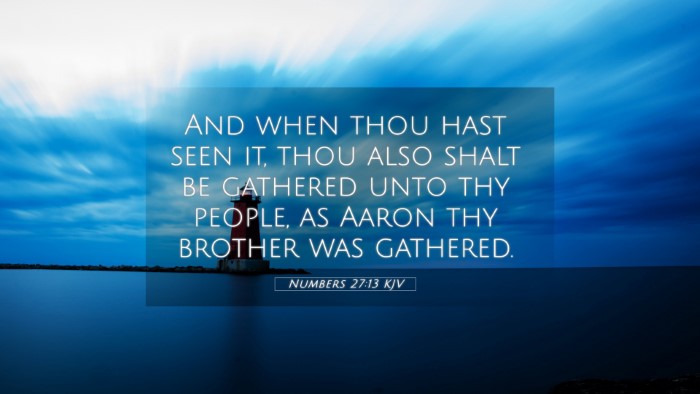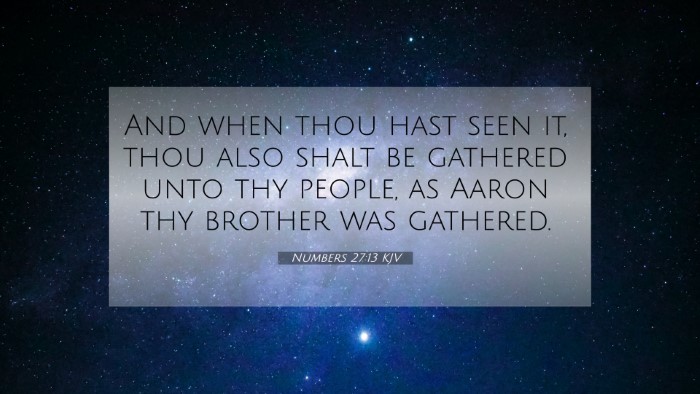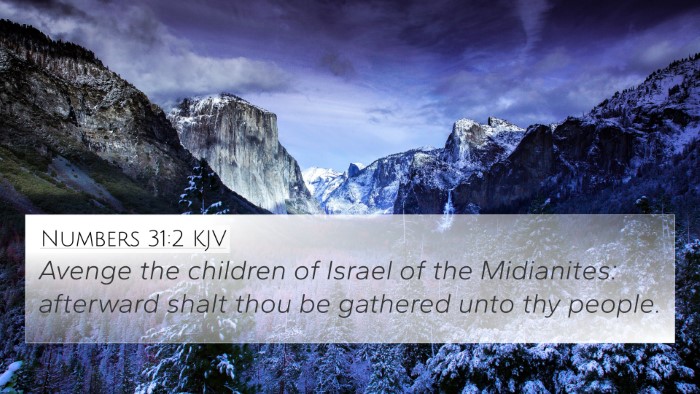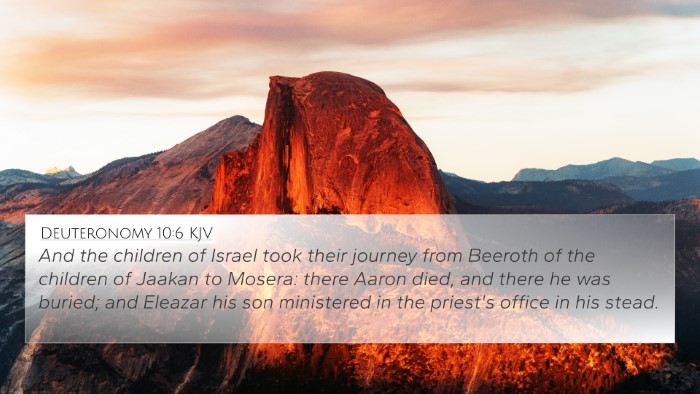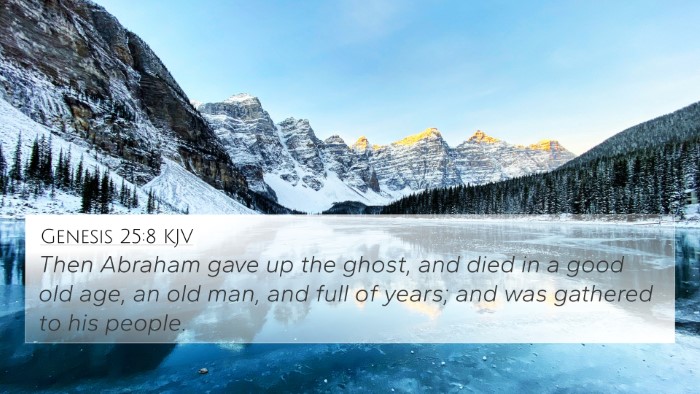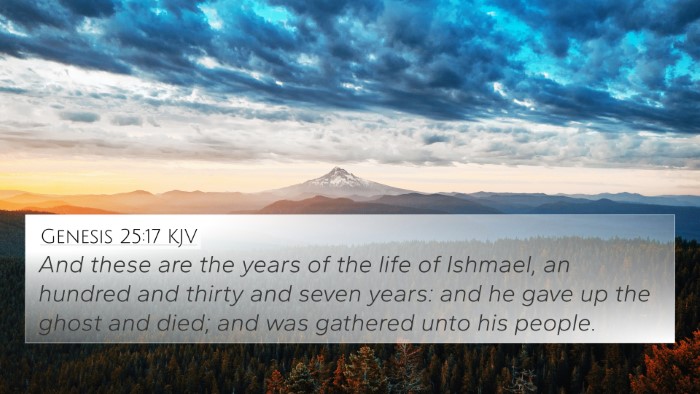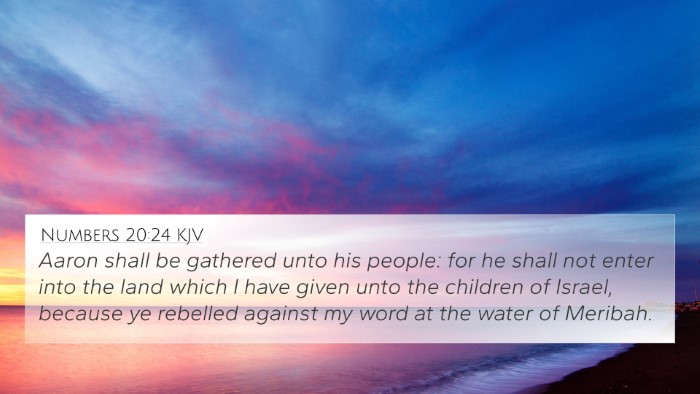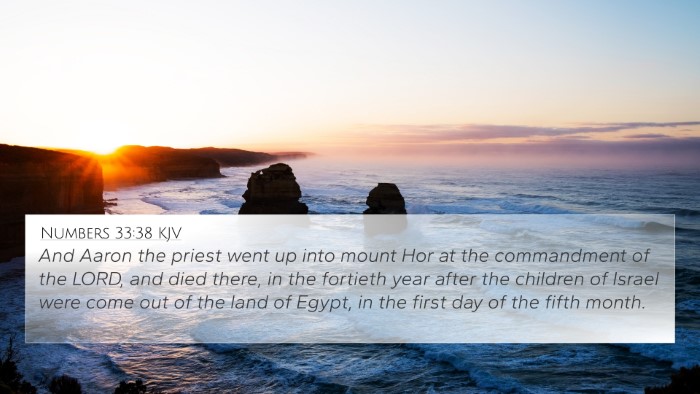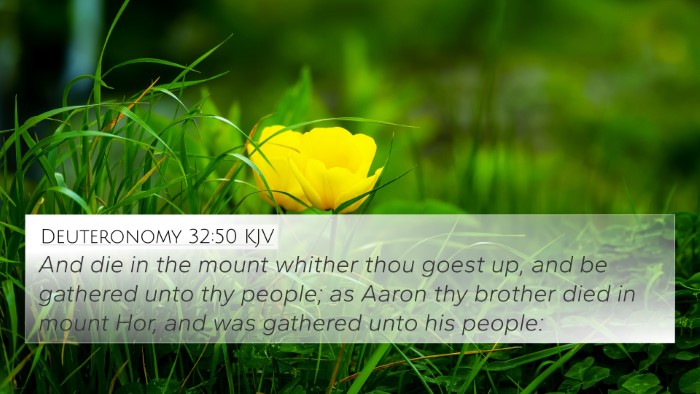Understanding Numbers 27:13
Verse: Numbers 27:13 - "And when thou hast seen it, thou also shalt be gathered unto thy people, as Aaron thy brother was gathered."
Summary of Meaning
Numbers 27:13 captures a significant moment in the journey of Moses. Here, God informs Moses that he will be allowed to view the Promised Land, a culmination of the Israelites' arduous journey, but he would not enter it himself. This verse highlights themes of leadership, the fulfillment of God's promises, and the inevitability of death.
Insights from Public Domain Commentaries
Matthew Henry's Commentary
Matthew Henry notes that Moses, despite his exceptional service and leadership of the Israelites, was not permitted to enter the Promised Land due to his earlier disobedience. This serves as a reminder of the seriousness of God's commands and the consequences of sin. However, Henry emphasizes God's mercy in allowing Moses to see the land, symbolizing hope and the faithfulness of God to His promises, both to Moses and to Israel.
Albert Barnes' Commentary
Albert Barnes draws attention to the phrasing "gathered unto thy people," which emphasizes the communal aspect of dying. He illustrates how Moses' death is not simply an ending, but a participation in the larger fellowship of faithful believers. Barnes connects this with other Biblical examples, suggesting that the gathering signifies a transition into God's eternal presence alongside those who have gone before.
Adam Clarke's Commentary
Adam Clarke provides a theological interpretation of Moses' restricted access to the Promised Land. He explains that Moses' earthly ministry was culminating, and that to see, rather than enter, signifies the completion of his calling. Clarke also notes this act as a metaphor for the Christian life, where believers may see the glory and promises of God but must wait for full realization in the next life.
Bible Cross-References
- Deuteronomy 3:23-27 - Moses' request to see the Promised Land and God's response.
- Numbers 20:12 - God's decree of Moses' no-entry into the Promised Land due to disobedience.
- Hebrews 3:1-6 - A comparison of Moses as a servant in God’s house and Jesus as the Son.
- Matthew 17:1-3 - Moses' appearance in the Transfiguration, connecting his legacy to Jesus.
- Philippians 3:20-21 - The concept of our citizenship being in heaven, paralleling Moses' connection to the Promised Land.
- 2 Timothy 4:7-8 - Paul reflecting on faithfulness and the promise of a heavenly reward.
- John 14:2 - Jesus speaks of preparing a place, echoing the concept of God fulfilling promises beyond earthly life.
Thematic Connections
The themes captured in Numbers 27:13 resonate deeply throughout Scripture. Here are a few considerations:
- Divine Justice and Mercy: The balance of God's justice in disciplining Moses and His mercy in allowing him to see the land.
- Leadership and Legacy: The transfer of leadership responsibilities to Joshua illustrates the ongoing nature of God's mission.
- Faith and Perseverance: The verse serves as a reminder for believers to remain faithful, knowing that God's plans extend beyond their lifetimes.
How to Use Bible Cross-References
When studying Numbers 27:13, consider using the following methods to explore its nuances further:
- Historical Context: Examine the broader narrative of Israel's journey and Moses' leadership.
- Comparative Analysis: Look at how similar themes of leadership and promise appear in other parts of Scripture.
- Thematic Study: Explore related themes such as faith, obedience, and legacy across various books of the Bible.
Conclusion
Numbers 27:13 is a poignant reminder of the complexities of faith, leadership, and God's promises. It invites deeper contemplation on how these themes interweave throughout scripture—reflecting on both the storied past of God's people and the enduring truths relevant to believers today.
